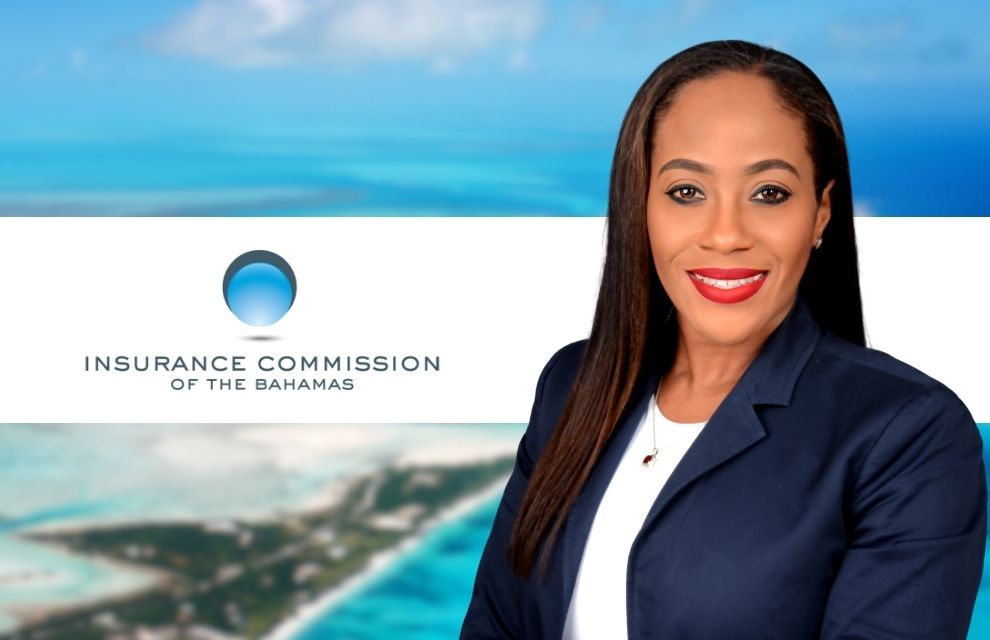Dana Munnings-Gray, acting superintendent of insurance, summarises recent developments in The Bahamas’ captive insurance industry
As the global insurance landscape dynamically shifts, The Bahamas is poised to re-establish itself as a prominent player in the captive insurance marketplace. Our jurisdiction has adopted strategic initiatives to cultivate an environment that fosters innovation and regulatory excellence.
We are strategically positioned for growth as our forward-thinking approach has enabled a complete revitalisation of the sector, including a legislative framework that aligns with future progressive market structures.
Dating back to the 1960s, the Bahamas has a longstanding history in the captive insurance industry. Bearing this legacy in mind, we will adapt to evolving market trends and capitalise on emerging opportunities. Our commitment to transparency and regulatory efficiency has positioned us favourably for a resurgence in the sector. The Insurance Commission of The Bahamas, as the supervisory authority for the Bahamian insurance industry, is actively enhancing the captive insurance sector. This enhancement involves streamlining the application process and maintaining a robust regulatory and supervisory framework which aligns with international standards.
Recognising the critical role the captive insurance market plays in contributing to the overall financial services sector, The Bahamas’ Government, in collaboration with the commission, aims to implement measures to reinvigorate the industry. These initiatives are geared toward boosting our jurisdiction’s competitiveness on the global stage. The commission has undertaken comprehensive benchmarking initiatives of successful captive insurance jurisdictions, gathering insights from global leaders to inform our strategy. By analysing best practices, emerging trends and regulatory innovations, we strive to incorporate elements that have proven effective in fostering a resilient captive insurance ecosystem.
Local insurance managers and other financial intermediaries are finding innovative ways to promote the captives market and other services offered in the jurisdiction. The Bahamas’ Financial Services Board (BFSB) has been a vital partner in this journey, playing an integral role in promoting the country as a competitive international financial centre. It actively highlights the synergy between financial services and the captive insurance industry.
Over the past 10 years, the number of licensed captive insurers in The Bahamas has grown. In particular, the region has seen an increase in the number of parent companies domiciled there and net premium volume.
This growth has been driven by small-to-medium-sized entities (SMEs) seeking a new destination for setting up their segregated accounts. The Bahamas has proven a cost-effective option, especially for SMEs outsourcing administrative and operational oversight to locally registered insurance managers, financial and corporate service providers and other financial services professionals.
In 2021, the commission initiated a review of The Bahamas’ primary insurance legislation, including the Insurance Act of 2005 and the External Insurance Act of 2009.
The legislation is set to undergo amendments aimed at streamlining regulatory and supervisory requirements and enhancing its framework. The proposed changes include the introduction of new licensee categories, regarding the type of business the entity will conduct as well as its structure, rather than its domicile or the constituents it serves.
There is a need to transcend traditional insurance models as the current legislation lacks the flexibility required for this evolution. However, the proposed overhaul will have the capability to accommodate future market structures. The amalgamation will enable our regulatory framework to adapt to the evolving needs of the captive insurance landscape more effectively.
The revised legislation will prioritise flexibility, enabling greater innovation and adaptation to emerging business trends. The evolving landscape of the captive insurance market emphasises technology, data analytics and risk management.
Therefore, the legislative framework must evolve accordingly. Innovation will be encouraged and our risk management standards must not diminish.
The Bahamas has a very robust domestic insurance market. Under the updated legislation, external insurers, much like their domestic counterparts, will be similarly supervised based on their risk profile.
Risk-based supervision factors in the size, nature, and complexity of the super institution. This approach determines which regulatory measures are required and implemented, regardless of where the policyholders reside.
Given current hard market conditions, institutions with a firm understanding of their risk and loss history may seek alternative means of financing the cost of insurance coverage.
Such conditions are often a catalyst for captive formation, which is proven to be an effective alternative risk transfer mechanism, especially when considering cost constraints.
The Bahamas is a competitive, cost-effective jurisdiction, brimming with local and international expertise.
The robust nature of our regulatory framework ensures that the Commission is poised to supervise any style of international insurance business within our borders.
The jurisdiction boasts professional and highly skilled service providers, which encompasses accountants, attorneys, and risk and compliance professionals.
Risk mitigation strategies are a hallmark of our industry, and our risk-based supervisory framework is proactive. The framework requires a frequent review of the evolving nature of risks in the global market to ensure agility and responsiveness to emerging challenges.
The jurisdiction is committed to fostering a collaborative ecosystem that values the input of domestic and international industry stakeholders, as we consider their perspectives instrumental in shaping the future and success of our industry.
Ongoing consultation with industry experts will further ensure that our proposed legislative framework aligns with the evolving needs of the market.
We have sought inspiration from successful jurisdictions while acknowledging the uniqueness of our market.
Balancing adherence to international standards with the specific needs of our jurisdiction is crucial to creating a regulatory environment that attracts international business and supports local economic interests.
Key factors such as reasonable regulatory costs, highly skilled and varied professionals, and the framework we employ in our approach to supervisory oversight will continue to attract both domestic and international insurance businesses.
The Bahamas is continuing to emerge as an important hub for captive insurance. Our vision for sustained growth, regulatory excellence, and collaboration with industry stakeholders is unparalleled.
We intend to do more than simply modernise our captive insurance legislation but to also become a pioneer in the concept of sustainable development in non-conventional paradigms.





